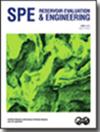Impact of Financial Assumptions on Economic Viability of Incremental Projects
IF 1.5
4区 工程技术
Q3 ENERGY & FUELS
引用次数: 0
Abstract
Commerciality assessment and reserves booking is an important task, routinely performed by every oil and gas company. The task is performed based on the guidelines presented in the Petroleum Resources Management System (PRMS). The PRMS, revised in 2018, is a system developed for consistent and reliable definition, classification, and estimation of hydrocarbon resources. The document was prepared by the Oil and Gas Reserves Committee under the auspices of the Society of Petroleum Engineers. The PRMS has been broadly adopted by the oil and gas industry as an international standard reference for the classification and categorization of oil and gas reserves and resources. The objective of this paper is to reiterate the well-known knowledge regarding the economic viability, economic limit, sunk cost, depreciation, incremental project vs. entity’s economics, economic contingency, and technical contingency in a simple, unambiguous, and concise manner. The paper emphasizes using only discounted cash flows in all economic evaluations whether it is for reserves booking or investment decision-making. It is unfortunate that this well-known knowledge is incorrectly described and used in the industry for commerciality assessment of oil and gas resources and investment decision-making. The paper also shows that some of the financial assumptions and definitions such as financing at the incremental project level, properly accounting for sunk cost, and treatment of income tax when an entity has positive taxable income, if applied correctly, can greatly and legally enhance the chances of commerciality and reserves booking.财政假设对增量项目经济可行性的影响
商业价值评估和储量登记是每个油气公司的例行工作。该任务是根据石油资源管理系统(PRMS)中提出的指导方针执行的。2018年修订的PRMS是一个用于一致可靠地定义、分类和估计碳氢化合物资源的系统。该文件是由石油工程师协会主持下的石油和天然气储备委员会编写的。PRMS已被油气行业广泛采用,作为油气储量和资源分类和分类的国际标准参考。本文的目的是以一种简单、明确和简洁的方式重申关于经济可行性、经济极限、沉没成本、折旧、增量项目与实体经济、经济偶然性和技术偶然性的众所周知的知识。本文强调在所有经济评价中,无论是储备记帐还是投资决策,都只使用折现现金流量。不幸的是,这些众所周知的知识在油气资源的商业评估和投资决策中被错误地描述和使用。本文还表明,一些财务假设和定义,如在增量项目层面融资,适当核算沉没成本,以及当一个实体有正应税收入时的所得税处理,如果应用得当,可以大大合法地提高商业和储备入账的机会。
本文章由计算机程序翻译,如有差异,请以英文原文为准。
求助全文
约1分钟内获得全文
求助全文
来源期刊
CiteScore
5.30
自引率
0.00%
发文量
68
审稿时长
12 months
期刊介绍:
Covers the application of a wide range of topics, including reservoir characterization, geology and geophysics, core analysis, well logging, well testing, reservoir management, enhanced oil recovery, fluid mechanics, performance prediction, reservoir simulation, digital energy, uncertainty/risk assessment, information management, resource and reserve evaluation, portfolio/asset management, project valuation, and petroleum economics.

 求助内容:
求助内容: 应助结果提醒方式:
应助结果提醒方式:


